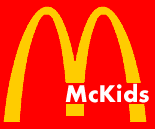







|

|
GUIDE TO BECOMING VEGANKNOW YOUR ONIONS This is to help you find out more about nutrition and suggested levels of intake of minerals, energy, vitamins and protein. A more in-depth guide to what is below. QUICK 5-DAY MEAL PLAN It might be helpful if you plan your meals. This plan shows you just how easy it is! Teen VegansThe Vegan Society gives you the information you need to make choices about your life and to help you to maintain the lifestyle you want. So where do you start? Here are a few areas to look at when considering going vegan:
Aged between 13 and 19 years of age? Want to be a vegan? You've come to the right place. There is very little knowledge available on the general eating habits of both British teenagers and teenagers in general. However, surveys suggest that fat and sugar levels are higher than recommended and that the starch and fibre intake is too low. The vegan diet is nearer to government health recommendations than any other dietary group in Britain. So, providing teenagers follow the guidelines in this booklet transition to a vegan diet should be trouble-free. Teenagers who follow a vegan diet have the same nutritional needs as any other teenager! Nutritional requirements are high between the ages of 13 and 19 years and it is generally recommended that they eat a wide variety of wholefoods or unrefined foods including fresh fruit and vegetables, bread, pasta, oats and other grains, nuts, seeds and pulses. Care must be taken to ensure protein, calcium, iron and B12 levels are maintained. In other words teenagers, along with the rest of the population, shouldn't live on coke, chips and chocolate! Teenagers or anyone else thinking of becoming vegan shouldn't think they have to weigh everything before they eat or read nutrition charts before every meal. Once a good understanding of nutrition is grasped, it is recommended to chill out and enjoy! Famous Vegans"I'm the Only Vegan in the Family"If you are the only vegan in your family it's not the end of the world. There are many common foods that everyone can share so you won't feel a nerd - you will find that there are more things in common than not. For example most people eat bread, pasta, baked beans, peas, rice, fruit, vegetables, breakfast cereals, biscuits, peanuts, peanut butter, jam, noodles, soup, vegetable curries, Marmite, porridge, etc. You will also be pleased to know that there are a wide variety of foods that can be used as an alternative to meat and dairy products e.g. soya milk, icecream, margarine and cream, veggie sausages, sausage rolls and pies. You can even buy vegan chocolate! There are also many cookery books around now that will give you ideas for meals. The recipes are usually easy to follow and the ingredients can be found in most shops. Family MealMake your family a vegan meal once a week to show them you mean business. They will be impressed with your initiative and enjoy the meal too! Ideas for Packed LunchesThere are lots of things you can take to school or college. Here are just a few ideas: Vegan DrinksThere are only a few things to look out for here but more importantly there are even less to things to avoid! Suitable vegan drinks range from the obvious: tea and coffee (with soya milk of course!), herbal tea, cocoa, fruit juice, mineral water, tap water(!), soft drinks, coffee substitutes such as Barleycup or Caro to the more imaginative such as soya milk shakes (chocolate, strawberry and vanilla flavours available or make your own!). Is it going to be expensive?Vegan foods don't have to be expensive. In fact, if you buy mostly unprocessed foods it will be a lot cheaper. If, however, you want lots of processed foods like sausage rolls and soya cheeses, be prepared to pay.Quick Nutrition GuideAim to eat a varied wholefood diet and choose foods from the following food groups on a daily basis. CerealsRice, wheat (bread, pasta), oats, shredded wheat, millet, corn, bulgur, cous cous PulsesBeans, peas, lentils (cooked or sprouted) Nuts & SeedsAll types of nuts, nut butters (peanut butter, cashew nut butter, etc), pumpkin, sunflower and sesame seeds and tahini (sesame seed spread). Also, sprouted seeds such as alfalfa and mustard. Vegetables -- cooked and/or rawDeep yellow & dark green leafy vegetables including carrots, green peppers, broccoli, spinach, endive and kale. Other vegetables include bean sprouts, potatoes, tomatoes, lettuce, cabbage, sweetcorn, celery, onions, cucumbers, beetroot, marrows, courgettes and cauliflower Fruits --fresh, dried & tinnedBananas, oranges, tangerines, grapefruit, apples, mangoes, cherries, grapes, apricots, pear, paw paws, kiwis, berries, currants, lemons and plums. Some Vegan Sources of Key NutrientsProteinWhole grains (e.g. whole wheat flour and bread, brown rice), nuts (e.g. hazels, cashews, brazils, almonds, cob nuts), seeds (sunflower, sesame, pumpkin), pulses (e.g. peas, beans, lentils), soya flour, soya milk, tofu. CarbohydrateWhole grains (e.g. wheat, oats, barley, rice), whole wheat bread, pasta and other flour products, lentils, beans, potatoes, dried and fresh fruit. FatsNuts and seeds, nut and seed oils, vegan margarine, avocados. Two polyunsaturated fatty acids not made by the body are the essential fatty acids linoleic acid (omega 6 group) and alpha linolenic acid (omega 3 group). Good sources of these fatty acids include: Linoleic acid - safflower, sunflower, corn, evening primrose & soya oils Alpha-linolenic acid - linseed, pumpkin seed, walnut, soya & rapeseed oils VitaminsA Carrots, spinach, pumpkins, tomatoes, dark green leafy vegetables, vegan margarines B Nuts, whole grains, oats, muesli, pulses, yeast extract (e.g. Marmite), leafy green vegetables, potatoes, mushrooms and dried fruit B12 Fortified yeast extracts (e.g. Marmite) and soya milks (e.g. Plamil), vegan margarines, packeted 'veggie burger' mixes, some cereals (e.g.Kellogg's Fruit & Fibre, rosties, Common Sense Oat Bran Flakes). Possibly: fermented foods (e.g. tamari, miso and tempeh, sea vegetables (e.g. hijiki, wakame and spirulina). C Citrus fruits (e.g. oranges, lemons, grapefruit), red and blackcurrants, berries, green egetables and potatoes D Sunlight, some soya milks (e.g. Plamil) and vegan margarines E Nuts, seeds, whole grains and flours, vegetable oils Folate Wheatgerm, raw or lightly-cooked green leafy vegetables (e.g. watercress, broccoli, spinach), yeast, yeast extracts, nuts, peas, runner beans, oranges, dates, avocados, whole grains. MineralsCalcium Molasses, seeds, nuts, carob, pulses, miso (fermented soya bean curd), parsley, figs (dried), sea vegetables, grains, fortified soya milk (several varieties are fortified with calcium) Iron Seeds, nuts, pulses, miso, grains, dried fruit, molasses, sea vegetables, parsley, reen leafy vegetables, using cast-iron cookware Zinc Wheatgerm, whole grains, nuts, pulses, tofu, soya protein, miso, peas, parsley, bean sprouts HINTSee the Vegan Society's Animal Free Shopper for lists of processed foods that you can buy in supermarkets and other shops! e-mail the Vegan Society at info@vegansociety.com |